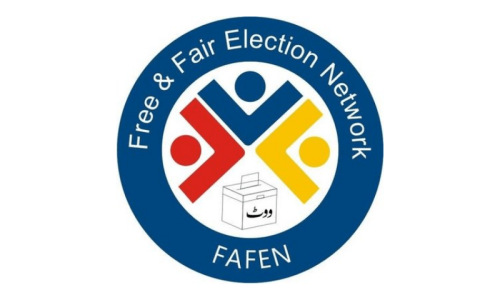
The third round of qualification for the 2014 World Cup started recently. As we all know, Pakistan were absent but it was not only Pakistan. India, Bangladesh, Sri Lanka and Maldives were also busy doing other things.
To say that it is disappointing for Pakistan is to make an obvious point. It is also disappointing for South Asia as a whole. Pakistan may have found it difficult to cheer on India and Bangladesh in the second round – of course, that is the nature of football and the nature of rivalry – but fans of the Greenshirts should have been at least a little sad that their neighbours didn’t even make the group stage.
That stage includes teams such as South Korea, Japan and Australia. It includes players who play their club football for Arsenal, Inter Milan, Borussia Dortmund, Everton, Wolfsburg, CSKA Moscow, Osasuna, Schalke, Hamburg, Sunderland – some of the established European teams. There are coaches like Frank Rijkaard who has managed the likes of Barcelona and Netherlands, Carlos Queiroz who arrived in Iran with the names of Real Madrid and Portugal on his CV, Japan’s Alberto Zaccheroni has coached a whole host of top flight Italian clubs – the list goes on.
The point is that this is a whole new ball game and a whole new level and Pakistan and South Asia have missed out. They have missed out on six games with good teams. This is what the team needs to improve. Playing against good teams and good players is a great way to get the experience necessary to improve.
It is not just about the players and the games. It is the atmosphere at the stadiums and especially the facilities. The players get to see some top of the range stadiums, practice pitches and everything that a top player gets to use. The administrators and support staff and members of the federation and the travelling journalists also get to see how the beautiful game is organized in places like Japan and South Korea, countries that have hosted the World Cup. It is all a great example for Pakistan to look at.
And then playing such big names gives the entire football community a boost. It gets the game in the news, it gets the fans excited and it gets people talking about the game.
That is why it would have been good to see a South Asian team in the group stage. It may not appeal to Pakistan fans to see India facing Japan but that is what the region needs. It benefits everyone in South Asia if all countries develop and improve.
Imagine if India, Maldives and Bangladesh were teams that qualified for the Asian Cup on a regular basis and perhaps even reached the latter stages of the qualification for the World Cups. It would make South Asia a strong football region on the continent and would be great for Pakistan.
Just look at the South Asian Football Federation Championships. This could become an annual event and one that would become increasingly important and become a great way for good teams to test themselves against good teams. It would produce interest outside the region and there could even be the possibility of inviting a couple of guest teams if that was so desired.
The timing of the tournaments could be such that they would take place during preparation ahead of qualification campaigns for the World and Asian Cups but still be a valuable tournament in its own right.
Anyway, the tournament should be a regular annual event that is fixed in the schedule so that everyone knows when it will be. It needs to become a more important part of the football calendar and become a competitive challenge for all. India should no longer be allowed to send its under-23 team, it has to become a well-respected and valued tournament.
There needs to be something for the clubs too. Indian teams perform reasonably well at the AFC Cup though have yet to reach the Asian Champions League. For clubs from Pakistan and other South Asian nations, that is still quite a long way in the future.
We all know that strong clubs make strong leagues and strong leagues make strong national teams. Of course, it is not quite that simple but that such a network gives a country its football spine. We need to get Indian and Pakistan clubs playing each other in a South Asian club competition along with clubs from elsewhere in the region. It can be as small as having just four teams in total in a mini-tournament played over a weekend or it can be as large as having a group stage and then a knockout stage.
It would take a little sponsorship money to get off the ground but would give clubs something to look forward to and give players at these clubs valuable experience in playing against teams from different countries.
The nations in south Asia have to focus more on the region. India especially are always looking outside and the national team can be found in any other region in the world except for their own backyard. That is partly India’s fault but also the fault of other countries. If everyone pulls together and works together then South Asia can become known for something other than cricket.
John Duerden is from England but has lived in Asia for over a decade. He writes about Asian football for The Guardian, ESPN, New York Times, Sports Illustrated, AP and many other publications.













































